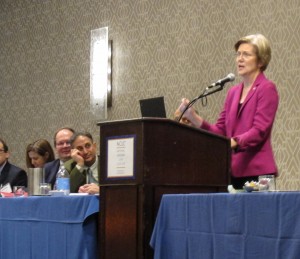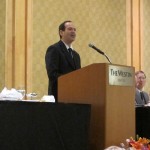Lee Camp: Our political system has cancer
A new study demonstrates that the United states is not a democracy, but an oligarchy. Lee Camp comments on this study: Common Dreams has also commented on the study, entitled "Testing Theories of American Politics."
A study, to appear in the Fall 2014 issue of the academic journal Perspectives on Politics, finds that the U.S. is no democracy, but instead an oligarchy, meaning profoundly corrupt, so that the answer to the study’s opening question, "Who governs? Who really rules?" in this country, is: "Despite the seemingly strong empirical support in previous studies for theories of majoritarian democracy, our analyses suggest that majorities of the American public actually have little influence over the policies our government adopts. Americans do enjoy many features central to democratic governance, such as regular elections, freedom of speech and association, and a widespread (if still contested) franchise. But, ..." and then they go on to say, it's not true, and that, "America's claims to being a democratic society are seriously threatened" by the findings in this, the first-ever comprehensive scientific study of the subject, which shows that there is instead "the nearly total failure of 'median voter' and other Majoritarian Electoral Democracy theories [of America]. When the preferences of economic elites and the stands of organized interest groups are controlled for, the preferences of the average American appear to have only a minuscule, near-zero, statistically non-significant impact upon public policy." To put it short: The United States is no democracy, but actually an oligarchy.You can find the study here. The following is the bottom line:
The central point that emerges from our research is that economic elites and organized groups representing business interests have substantial independent impacts on U.S. government policy, while mass-based interest groups and average citizens have little or no independent influence. Our results provide substantial support for theories of Economic Elite Domination and for theories of Biased Pluralism, but not for theories of Majoritarian Electoral Democracy or Majoritarian Pluralism.


